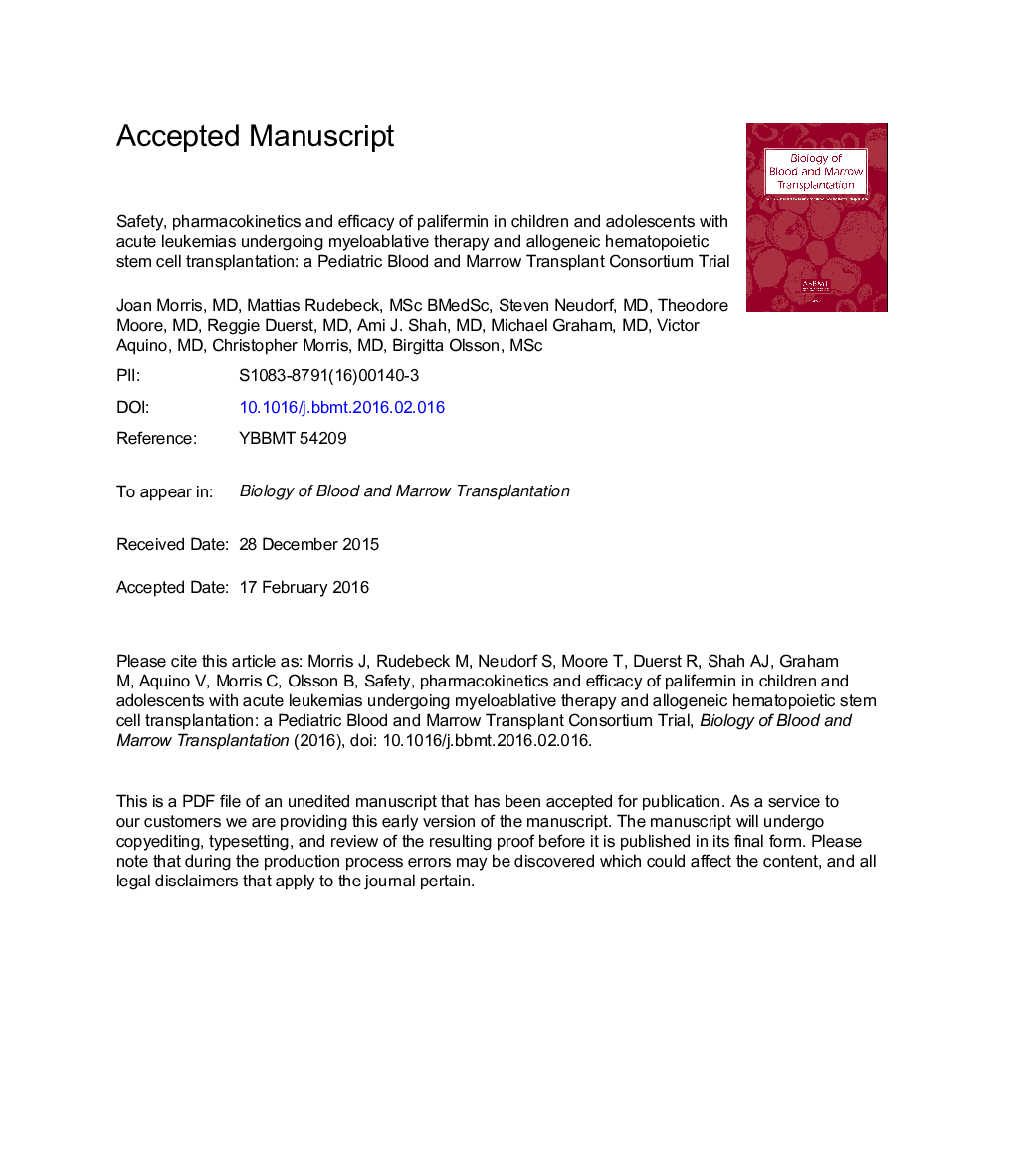| Article ID | Journal | Published Year | Pages | File Type |
|---|---|---|---|---|
| 8430985 | Biology of Blood and Marrow Transplantation | 2016 | 37 Pages |
Abstract
Currently, effective pharmacologic treatment to reduce severe oral mucositis (OM) resulting from high-dose myeloablative cytotoxic therapy in the pediatric population is not available. Palifermin has been proven to decrease the incidence and duration of severe OM in adults with hematologic malignancies undergoing hematopoietic stem cell transplantation (HSCT). In the pediatric population, however, data on palifermin treatment are limited. A phase I dose-escalation study of palifermin in pediatric patients with acute leukemias undergoing myeloablative HSCT with total body irradiation, etoposide, and cyclophosphamide was performed to determine a safe and tolerable dose and to characterize the pharmacokinetic (PK) profile and efficacy of palifermin. Twenty-seven patients in 3 age groups (1 to 2, 3 to 11, and 12 to 16 years) and 3 dose levels (40, 60, and 80 μg/kg/day) were studied. There were no deaths, dose-limiting toxicities, or treatment-related serious adverse events. Long-term safety outcomes did not differ from what would be expected in this population. PK data showed no differences between the 3 age groups. Exposure did not increase with increase in dose. The maximum severity of OM (WHO grade 4) occurred in 6 patients (22%), none of whom was in the 80-μg/kg/day dosing group. This study showed that all doses were well tolerated and a good safety profile in all 3 pediatric age groups was seen.
Related Topics
Life Sciences
Biochemistry, Genetics and Molecular Biology
Cancer Research
Authors
Joan Morris, Mattias Rudebeck, Steven Neudorf, Theodore Moore, Reggie Duerst, Ami J. Shah, Michael Graham, Victor Aquino, Christopher Morris, Birgitta Olsson,
